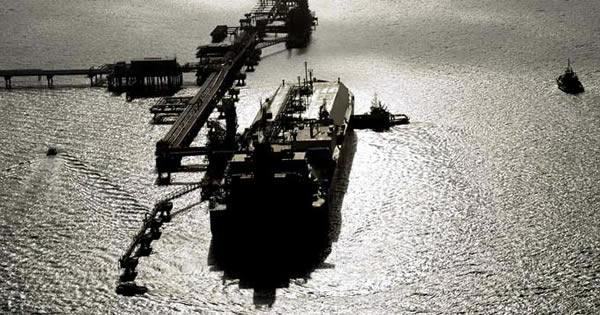Qatar LNG’s looming revenue test
Supply contracts linked to oil prices have proved lucrative for Qatar's gas export industry, helping propel it to global dominance. But Doha may soon be forced to reconsider its options if it wishes to retain its position, reports Jamie Stewart.

Qatar has traditionally linked its long-term gas supply contracts to crude oil prices – a model of pricing known as oil indexation. But it may be forced to consider linking contracts to gas hub prices in future, because while the country has in place a moratorium on the further development of liquefied natural gas (LNG) production facilities, more LNG supply infrastructure is due to come on line from other parts of the world from 2015.
Qatar must be willing to price its LNG exports in a way that is more competitive or risk seeing its substantial global market share diminish over coming years, according to a top energy analyst. This supply from other quarters will of course, inevitably erode Doha’s market share, Trevor Sikorski, energy analyst at Barclays Bank told TheEDGE, unless Qatar is prepared to explore a more flexible pricing model.
“It’s not so clear, because it’s volumes or values,” Sikorski explained. “You can believe in value, which means you like to ensure gas is expensive regardless of how many customers use it, but effectively, the Qataris do have an issue, with a lot of new gas coming on line.”
In 2011, 31 percent of the global LNG import volume was supplied by Qatar, or an immense 75.4 million tonnes, according to the France-based International Group of Liquefied Natural Gas Importers (GIIGNL). This made it global leader by a very comfortable margin.
To give an indication of Doha’s dominance, Malaysia regained its second rank ahead of Indonesia with a nine percent market share.
Little in the way of new production infrastructure is expected to come on line in 2013 and 2014. Indeed, as Sikorski said, “we think [the supply and demand balance in] 2014 will be fairly tight”, but thereafter, some major production infrastructure is expected to come on stream in Australia, while exports from the United States (US) are widely expected to pick up as a result of that nation’s boom in unconventional gas recovery.
OUTSIDE INVESTMENT
Qatar’s moratorium on LNG production commenced after the nation reached its stated goal of having the capacity to produce 77 million tonnes per annum in 2011.
It has since been mooted that, in order to further develop their businesses in the global LNG arena, Qatar-owned companies would need to consider investing in production facilities outside of Qatar.
Qatar Petroleum (QP) for example, was understood to have expressed interest in acquiring a stake in the Yamal LNG project in Russia from independent Russian company Novatek, although the Qatar giant chose not to comment on any discussions. And earlier this year QP filed to convert the Golden Pass terminal in the US to an export facility.
But, according to Sikorski, such steps may not be strictly necessary if the goal is the protection of market share. “If they want market share they can go and get it. They have by far the most marginal cost of production, particularly when you compare it to some of the new facilities coming online,” he said.
And, on the demand side of the equation, pressure for a move away from oil indexation is fast growing. European utilities including the Czech branch of Germany’s RWE and Italy’s Edison have successfully gone to arbitration – Edison with Qatar’s RasGas, as reported in TheEDGE – to argue for a discount on prices paid under long-term, oil-indexed contracts.
It may therefore be a case of sooner rather than later, if Qatar wishes to protect its share of the market, as opposed to taking the expensive overseas investment path via structural, sustainable financial means.
Qatar’s 2011 LNG world market share In Numbers
- Qatar supplied 31 percent of imported LNG across the globe in 2011, or 75 million tonnes – not far off its full annual capacity.
- Doha ended the year with an operational production capacity of 77 million tonnes of LNG per annum.
- Qatari production accounted for 67 percent of global LNG trade growth.
- Italy’s Edison said it saved around QR2 billion following contractual arbitration proceeding’s with Qatar’s RasGas.
Like this story? Share it.
-
Steve Black
-
http://twitter.com/TheEdgeEd Miles Masterson





